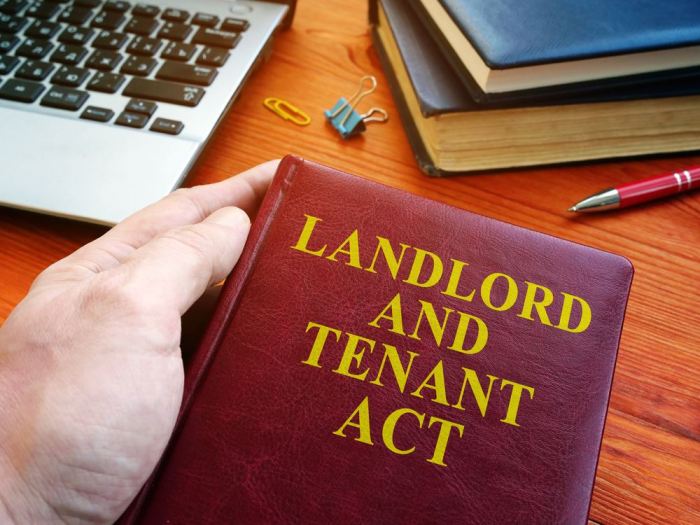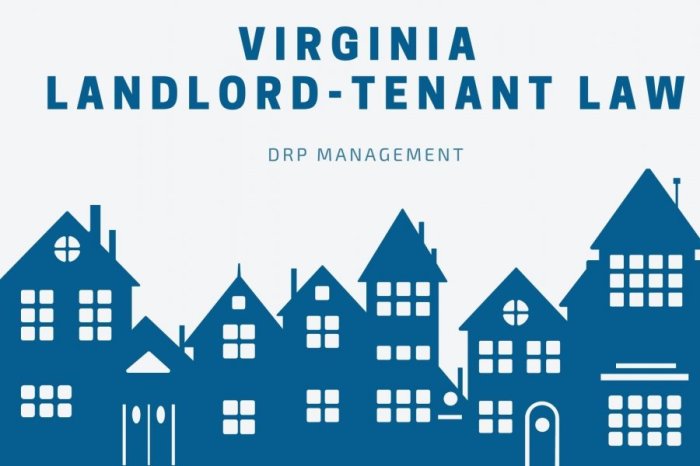Under the virginia residential landlord and tenant act application deposits – Under the Virginia Residential Landlord and Tenant Act, application deposits play a significant role in the rental process, ensuring fairness and clarity for both landlords and tenants. This comprehensive analysis delves into the legal basis, permissible amounts, and circumstances surrounding application deposits, providing a thorough understanding of their use and implications.
Application Deposits under the Virginia Residential Landlord and Tenant Act: Under The Virginia Residential Landlord And Tenant Act Application Deposits

Application deposits are fees charged by landlords in Virginia to prospective tenants as a condition of applying for a rental unit. These deposits are governed by the Virginia Residential Landlord and Tenant Act (VRLTA), which sets forth the legal basis, limits, and conditions for application deposits.
The purpose of application deposits is to cover the landlord’s expenses incurred during the screening process, such as credit checks, background investigations, and references. The VRLTA limits the maximum amount that can be charged as an application deposit to one month’s rent for the unit.
Landlords may retain an application deposit if the applicant is not approved for the rental unit due to:
- False or misleading information on the application
- Unsatisfactory credit history
- Poor references
- Criminal background that poses a risk to the landlord or other tenants
Refund of Application Deposits

If the applicant is not approved for the rental unit, the landlord must refund the application deposit within 15 days of notifying the applicant of the denial. The VRLTA provides for the following exceptions to the refund requirement:
- The applicant withdraws their application
- The applicant is approved for a different unit owned by the same landlord
- The landlord has retained the deposit due to one of the reasons listed above
Applicants who believe their application deposit was wrongfully retained may file a complaint with the Virginia Department of Housing and Community Development (DHCD).
Use of Application Deposits
Landlords may use application deposits to cover the costs associated with screening applicants, including:
- Credit checks
- Background investigations
- Reference checks
- Administrative expenses
Landlords are required to maintain accurate records of all application deposits received and disbursed. These records must be made available to tenants upon request.
Comparison with Other Jurisdictions

The VRLTA’s provisions on application deposits are similar to those in many other states. However, there are some key differences:
- In some states, landlords are allowed to charge a higher application deposit, such as two months’ rent.
- In other states, landlords are required to refund application deposits within a shorter period of time, such as 10 days.
- Some states have additional restrictions on the use of application deposits, such as prohibiting landlords from using them to cover marketing expenses.
These differences highlight the importance of tenants understanding the specific laws governing application deposits in their state.
Frequently Asked Questions
Can a landlord charge an application fee in addition to an application deposit?
No, Virginia law prohibits landlords from charging both an application fee and an application deposit.
How long does a landlord have to refund an application deposit if the applicant is not approved?
Landlords must refund application deposits within 15 days of rejecting an applicant.
Can a landlord keep an application deposit if the applicant withdraws their application?
No, landlords cannot retain application deposits if the applicant withdraws their application before the landlord has incurred any expenses related to processing the application.